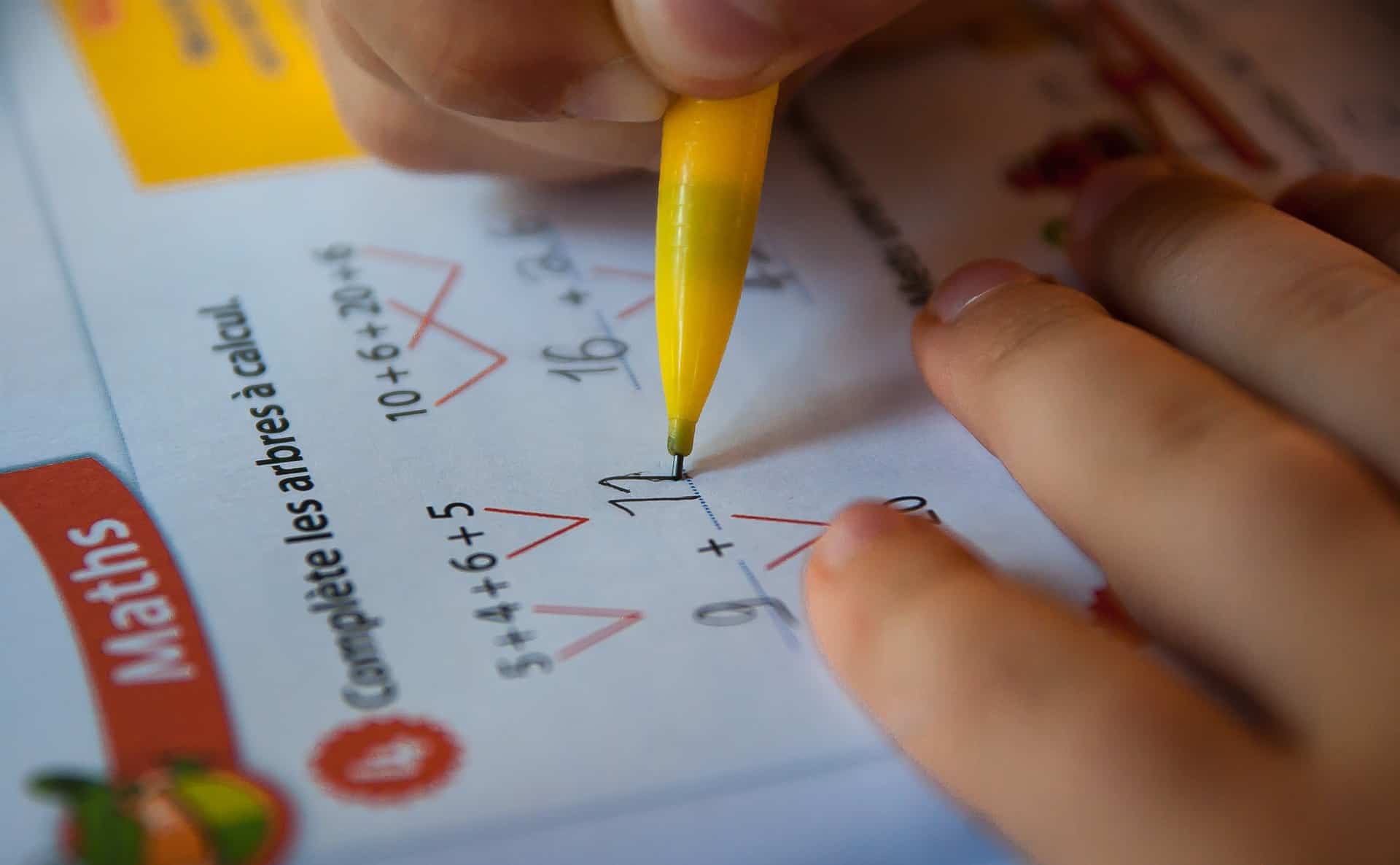A Focus on Math Anxiety

Back to school is a difficult time for students of all ages; saying goodbye to the summer months of rest and gearing up to head back to school is not always easy. The purchasing of new school equipment is a time of nervous excitement for those preparing for school. Most of these stresses and anxieties are easy to understand by parents and teachers. Thus, adults can actively help to relieve them. What educational researchers are finding now is that a new type of scholastic anxiety might be plaguing many students and causing a whole host of new problems. Math anxiety experts are now raising alarm bells to warn parents, teachers, and administrators of the danger of ignoring mathematics based anxiety.
What is Math Anxiety?
The term Math Anxiety (MA) and research on the topic are relatively new, but the symptoms themselves are not. Math anxiety research is breaking new ground in the fields of educational psychology and child psychology helping to answer the hard questions that surround this phenomenon. New studies show that poor attitudes and neglect towards math from teachers and parents correlate with low student achievement in the subject area and the development of a math-based anxiety disorder. This low achievement creates a vicious cycle of poor math scores thus a poor attitude towards the subject matter. Students are not only believing they are bad at math. They are also developing anxiety disorders around the subject causing damaging effects on mental health as well as career paths.
How does math anxiety start to become part of some student’s daily school routine?
One significant stress on the shoulders of young students is the desire to achieve academic success; Parents expect academic excellence, but students do not always clearly understand how to accomplish this goal. The two most fundamental subjects that are the base for all other academic disciplines are literacy (reading) and numeracy (math). These two building blocks are vital to long-term academic success. With strong foundations in these two areas students will be able to brand out successfully into other subjects. While both of these core subjects are of great importance, each subject does not get equal attention thus the beginning of the math anxiety conundrum.
From elementary school onward, emphasis on literacy is strong. There are expectations of having books in the home and being read to each night by an adult. However, numeracy is typically left to develop solely at school. The problem with the idea that numeracy skills will improve only at school is that it becomes an academic self-fulfilling prophecy. Students decide at a very young age that they are just “not good at math” as if it is a skill people are born with, a negative feeling, attitudes, and beliefs start to become truth. Math is strikingly similar to literacy. It takes practice to hone the skills necessary for success in numeracy. Naturally, these skills take years and years to learn.
What do the experts say about Math Anxiety?
Dr Jill A.B. Price from the University of Regina in Saskatchewan, Canada is a professor in the Department of Psychology and has devoted her career to studying math anxiety. She is working to help educate teachers and parents about this dangerous type of anxiety disorder and to expand popular knowledge around math anxiety so that new generations of students can thrive and have the option to explore career opportunities that were not available to previous generations. Below are some important questions on the topic, answered by Dr Price.
What advice would you give a parent reading this article and considering math anxiety for the first time?
My advice to parents is to try to promote positive math attitudes as much as possible in the home, regardless of their personal feelings or understanding about math. Furthermore, the earlier that parents can engage in math-related activities with their children the better.
Should the emphasis as it pertains to math anxiety be on prevention or cure?
The primary focus of research should be on prevention of math anxiety. If we can prevent math anxiety from developing in the first place, then we can eliminate its negative consequences on children’s future academic success. Although, research on interventions is also important for those who have already developed symptoms of math anxiety.
The statement, “Parent’s involvement in their children’s education is critical especially in early development” can you elaborate on this?
There is a widely held belief that children’s math achievement is primarily the responsibility of teachers. However, parents’ involvement in their children’s math achievement is critical. This does not suggest that parents must maintain a strong understanding of math. Rather, parents can promote children’s math achievement by merely encouraging positive math attitudes. For instance, children with more positive math attitudes show higher math achievement than children with more negative math attitudes. Research also shows that children who engage in math-related activities (e.g., building block, board games, cards) more often in the home show more positive attitudes and higher math achievement than children who engage in fewer math-related activities in the home.
What advice would you give elementary school teachers on the topic of math anxiety?
Math anxiety manifests itself as having low enjoyment, confidence, and motivation in math. It is also highly associated with avoidance behaviours. My advice to teachers is to pay attention to these warning signs of math anxiety. The earlier children struggle with math achievement, the more likely they will fall behind in their current and future math education. The earlier teachers can identify these children struggling with math, the earlier that interventions can be administered to alleviate long-term consequences. Similar to parents, I recommend teachers also promote positive math attitudes as much as possible in the class, regardless of their personal feelings or understanding about math.
What advice would you give educational policymakers on the topic of math anxiety?
Teachers undoubtedly play an important role in the development of children’s math achievement. However, research shows that the majority of teachers report moderate to high levels of math anxiety. More concerning, elementary school teachers display higher math anxiety compared to any other levels of teaching. This is problematic as one of the best predictors of future academic success is early math achievement. Therefore, my advice to educational policymakers is to provide math-specific teachers in elementary schools who are not only knowledgeable but also comfortable teaching the material.
